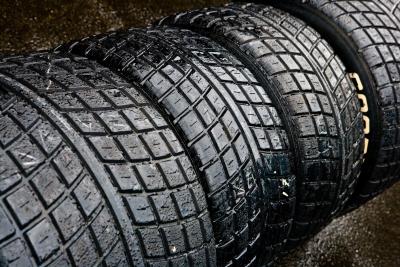
Choosing the right kind of tires for your vehicle can be an important decision. Choosing between all-weather tires and winter tires will factor into that decision, depending on your specific situation.
Neither all-weather nor winter tires should be confused with all-season tires, which aren't suitable for most winter conditions.
Both winter tires and all-weather tires meet the Severe Winter Traction Standard, meaning the tires provide adequate traction in mud and snow conditions. These tires are marked with a snowflake symbol.
Winter tires are made with a softer tread composition. This allows for better grip on ice and snow. While all-weather tires can last in winter conditions, they will not have a grip as good in a cold-weather situation.
The composition of winter tires will cause them to not only wear out faster in a warmer environment but also not have good traction in dry conditions. All-weather tires will last longer in this situation and provide better grip.
If you live in an extremely cold area, such as Alaska, winter tires are suitable for the extreme winter conditions there. Most other areas, which alternate between warm and cold weather, are more suitable for all-weather tires.